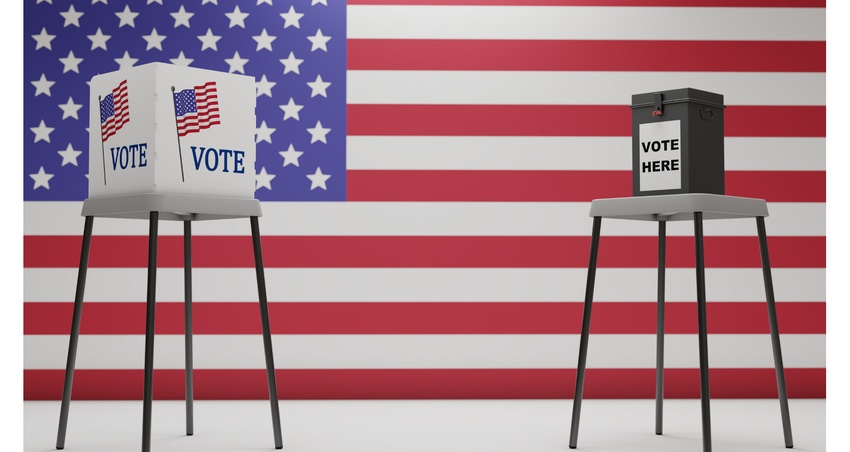Forget broken polling machines and hacker threats. AI is now the technology raising the alarm over future elections.

At a Glance
- An AP-sponsored poll found many voters concerned AI could spread misleading information before next year’s election.
Election Day 2023 is likely to be a ho-hum affair in most localities throughout the U.S., with governors, mayors, county judges, and other local representatives probably the most contested races. But with the next Presidential election just a year away, there’s already been a bit of buzz surrounding who will and who will not run. That buzz will get exponentially louder in the months ahead.
Once again, a key factor in that buzz could be technology. Social media posts and polls have become more pronounced in the last two presidential elections and will likely be a factor again. But in 2024, the x-factor could be artificial intelligence, which has come out of the dark and into the public eye this year in both business and social spheres.
An underlying distrust of AI-generated information among the public is already becoming present in some early surveys. One notable poll from The Associated Press-NORC Center for Public Affairs Research and the University of Chicago Harris School of Public Policy was discussed in detail in a recent AP (Associated Press) report.
The AP article quoted the poll as stating that nearly 6 in 10 adults (58%) think AI tools will increase the spread of false and misleading information during next year's elections. This misinformation is based on AI’s ability to micro-target political audiences, mass produce persuasive messages, and generate realistic fake images and videos in seconds.
The report noted that only 6% think AI will decrease the spread of misinformation, while one-third say it won’t make much of a difference.
Pictures Don’t Lie, or Do They?
According to the AP report, the most egregious potential AI sin would be the ability of candidates to create false or misleading images and videos for their political advertisements, said 83% of those polled. Another 62% were concerned that candidates would use AI to tailor their political advertisements to individual voters. Fifty-six percent were concerned about candidates using AI chatbots to answer voters’ questions about their campaign.
Political party affiliation made relatively little difference in the poll’s results. The AP report quoted the poll as stating 85% of Republicans and 90% of Democrats reacted unfavorably to presidential candidates creating false images or videos, for instance.
Despite the bipartisan pessimism toward AI, the AP report noted that the Republican party has already deployed AI to show the future of the country if President Joe Biden is reelected. The ad, which disclosed in smaller lettering it was AI-generated, used fake but realistic-looking photos showing boarded-up storefronts, armored military patrols in the streets and waves of immigrants creating panic.
The article quoted the poll as clearly spelling out the distrust in AI chatbots, with just 5% highly confident chatbot information is factual, 33% are somewhat confident, and 61% not very or not at all confident that such information is reliable.
In fact, the poll quoted in the report found that Americans are more likely to consult the news media (46%), friends and family (29%), and social media (25%) for information about the presidential election than AI chatbots.
President Biden appears well-aware of the potential disruptions from and distrust in AI. The President recently signed an executive order calling for the industry to develop safety and security standards. The order also asked the Commerce Department to issue guidance to label and watermark AI-generated content.
About the Author(s)
You May Also Like





